The Many Shades of Brown
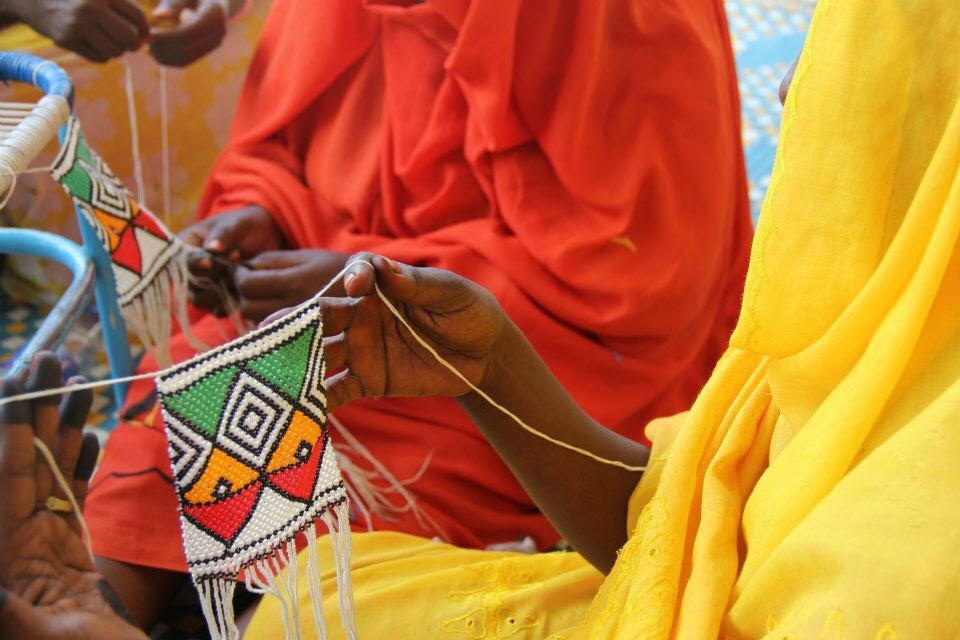
I am a 41-year-old Sudanese woman, born and raised in Sudan by Sudanese parents. I am also a wife and mother to a Sudanese family. These details may seem strange to start with, but despite living in Khartoum for most of my life, I am asked almost every day where I am from and where my parents are from. My children are also often asked where their mother is from. When out with my mother, I am asked if the Sudanese ‘looking’ woman in a toub — I often wear one myself — is in fact my mother.
Growing up in Khartoum, we, the Sudanese children, collectively dressed differently. We did not look the same as each other with varying skin tones from shades of ebony to milk and spoke in different dialects and languages. At no point during our childhood were our roots discussed. I do not wish to add to the trend of reminiscing about a Sudan long gone or contribute to romanticising about a past that denies how wonderful this country is, even today with its seeming deterioration. However, I do believe it is important to realise how things have changed and how today, common perception of the Sudanese identity has become unrecognisable.
Sudan is rooted in a vibrant and rich history of migration; from the Indians who came as merchants in search of opportunity to East Sudan in 1699, to the Turkish people who have been in Sudan from as early as the 1820s. Even the Ethiopians and Eritreans, whose cultural influence on daily Sudanese life is evident through our wonderful Jabana (coffee ceremony) and the Greeks whose cheeses have been wonderfully adapted into our delicious madafara, roumi and feta, also Nigerians, Egyptians, Armenians, Chadians and Yemenis. The integration of these communities varies and can be seen as dependent on context, community acceptance (from both sides), race, religion, politics and economic wealth. These communities came to Sudan under diverse circumstances and it would be an oversimplification to summarise them together here, but the fact remains that they have all had varied degrees of influence and contribution to the cultural and social fabric of Sudan today.
Despite Sudan’s vibrant migration history, it is very difficult to acknowledge these contributions today and conduct a real discussion on the rights of these communities on a Sudanese identity. This may seem understandable because we cannot deny the politicised conflicts around identity that have resulted into more serious atrocities in our country. Within an intellectual and liberal civil society context, a lot is being said about the deterioration of human rights of marginalised Sudanese communities who are exposed to systemised racism through civil war and atrocities; which is surely an extremely valid and urgent issue to address. As we continue to do so, we must also remember that in essence, a lot of what Sudanese politics has become is about creating a magnified understanding of the ‘other’. Amidst such polarisation, the definition of what constitutes a Sudanese identity is rapidly narrowing. We must responsibly commit — within the larger, diverse social history of Sudan — to not only include those Sudanese who are in urgent need of political and social protection, but also those who came to Sudan more than a century ago and do not necessarily face the same atrocities.
These ‘migrant’ communities have built homes and families here, they have had economic contributions, created rituals and traditions, have ancestors buried here and have had a permanent imprint in Sudanese society. We must realise that at some point they are no longer ‘from elsewhere’. The roots identity debate is futile, both in Sudan and globally, and unless discussed within a celebratory context, it can be extremely problematic to social progress. If we are supposed to be just one or two shades of brown then we are excluding millions of Sudanese across the country. Sometimes, we hear and share anecdotes on racist, sexist or even criminal ‘Greek, Turkish, Nigerian, Indian and Ethiopian Sudanese’ making sure to highlight those ‘foreign roots’ as the cause. These stories are not only extremely racist, but also overlook how slim the chances are that the person’s ‘origin’ has anything to do with his behaviour. It could be that the person is, in fact, just another Sudanese struggling to find basic dignity in his or her home.
We must remember that generalising ourselves, in all our shades, religions, genders and ethnicities is detrimental to us, as a people. Our diversity, cliché as it may sound, is what built Sudan, and it is what is keeping it alive despite the challenges it’s facing. We must tread cautiously when sharing our experiences about those that do not fall under our perceptions of ‘Sudanese’ and acknowledge their right to citizenship not just on paper but in our social sphere — remembering that we all have equal rights to our opinions, social behaviours and beliefs.
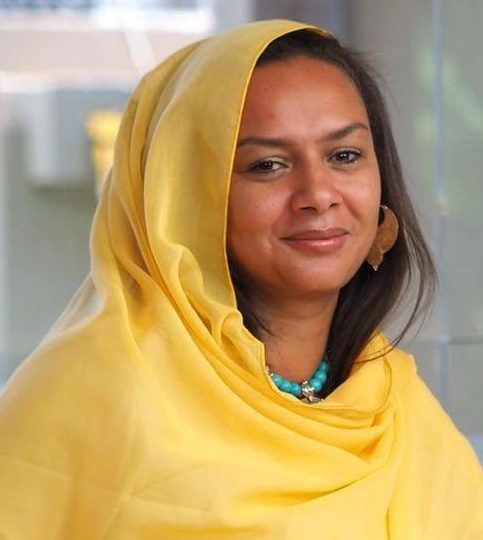 Dalia El Roubi is a Sudanese media and development communications specialist, who has been working for 15 years with different non-governmental organisations and UN agencies on child rights advocacy, migration, governance, rule of law, environment, post conflict recovery, HIV/AIDS, TB and malaria. She works on creative behavioural communication, strategic corporate communication, knowledge management and has lived and worked in Sudan for most of her life. Dalia has a Bachelor’s Joint Honors Degree in Anthropology and Communication (specialisation: journalism and documentary filming) at Goldsmiths College, University of London; and a Master’s Degree in Media and Mass Communication with the University of Leicester. Currently and generally based in Sudan, Dalia is a strong believer in the importance of valuing the complex Sudanese identity, committing to the idea that change can only happen if one takes personal responsibility in it. With a very low tolerance to negative narratives around Sudan, Dalia believes in the power of words said to others and ourselves. She also believes that Sudan is a ‘she’, click here to find out more.
Dalia El Roubi is a Sudanese media and development communications specialist, who has been working for 15 years with different non-governmental organisations and UN agencies on child rights advocacy, migration, governance, rule of law, environment, post conflict recovery, HIV/AIDS, TB and malaria. She works on creative behavioural communication, strategic corporate communication, knowledge management and has lived and worked in Sudan for most of her life. Dalia has a Bachelor’s Joint Honors Degree in Anthropology and Communication (specialisation: journalism and documentary filming) at Goldsmiths College, University of London; and a Master’s Degree in Media and Mass Communication with the University of Leicester. Currently and generally based in Sudan, Dalia is a strong believer in the importance of valuing the complex Sudanese identity, committing to the idea that change can only happen if one takes personal responsibility in it. With a very low tolerance to negative narratives around Sudan, Dalia believes in the power of words said to others and ourselves. She also believes that Sudan is a ‘she’, click here to find out more.

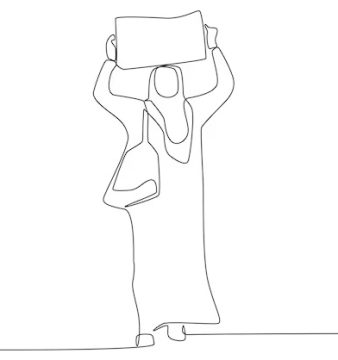
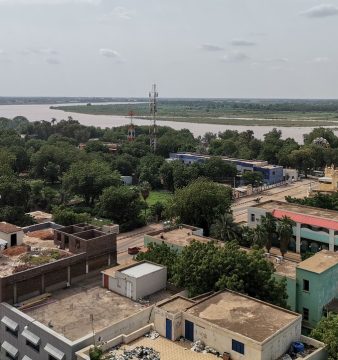
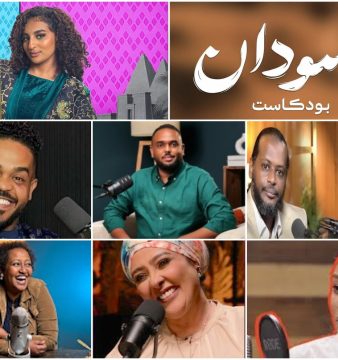
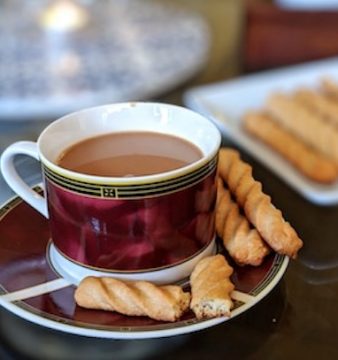
Well written Dalia, have been facing truly this same issue since years ago and have always wondered on why are people concerned where we originate from why can’t we just accept that we’re born in this country and have been raised to its culture and ethics..
Well written and beautifully expressed. It is through such perceptions “our” Sudan will brush off the ill newly adopted toxic social behavior and views. Thank you Dalia.